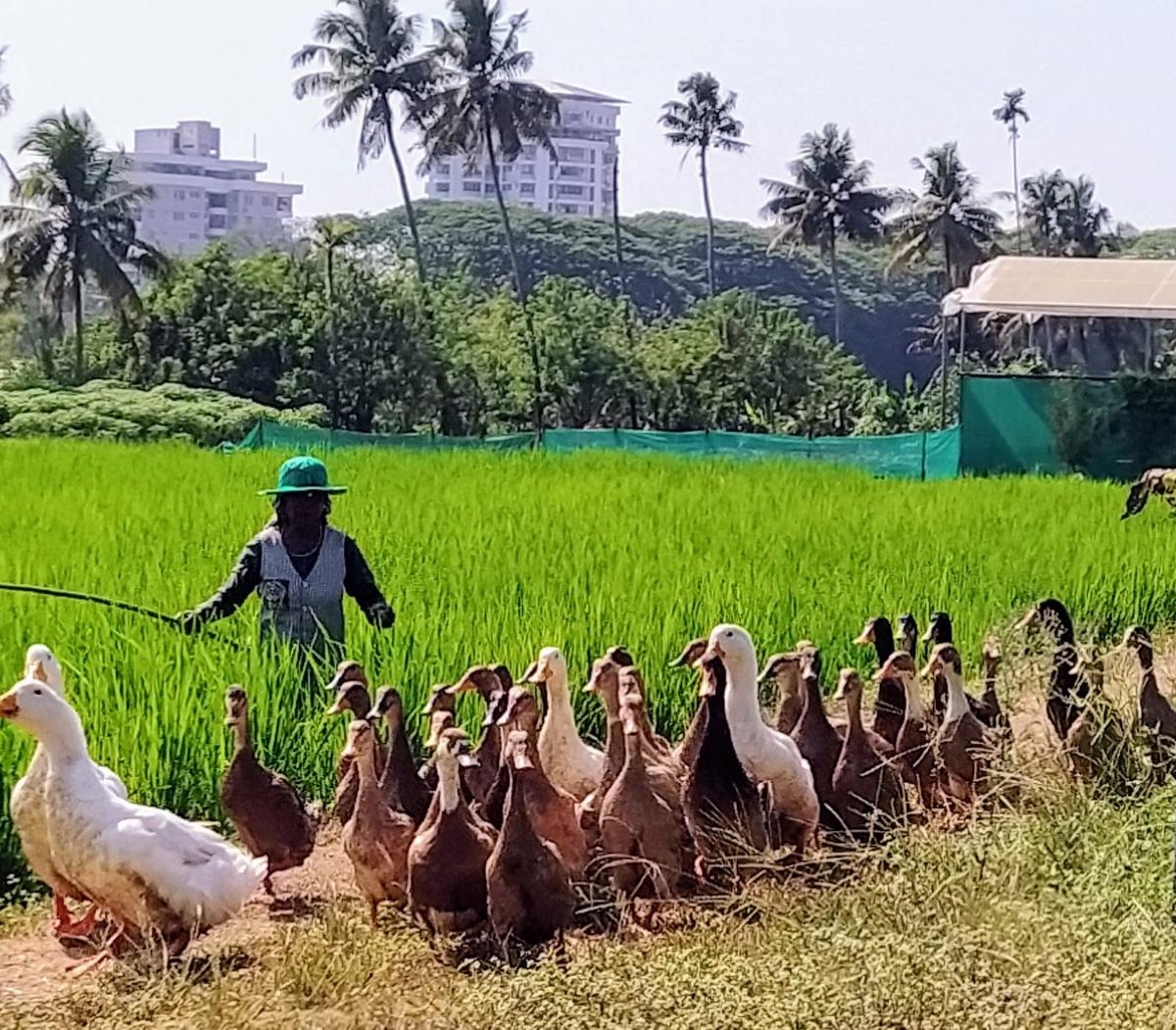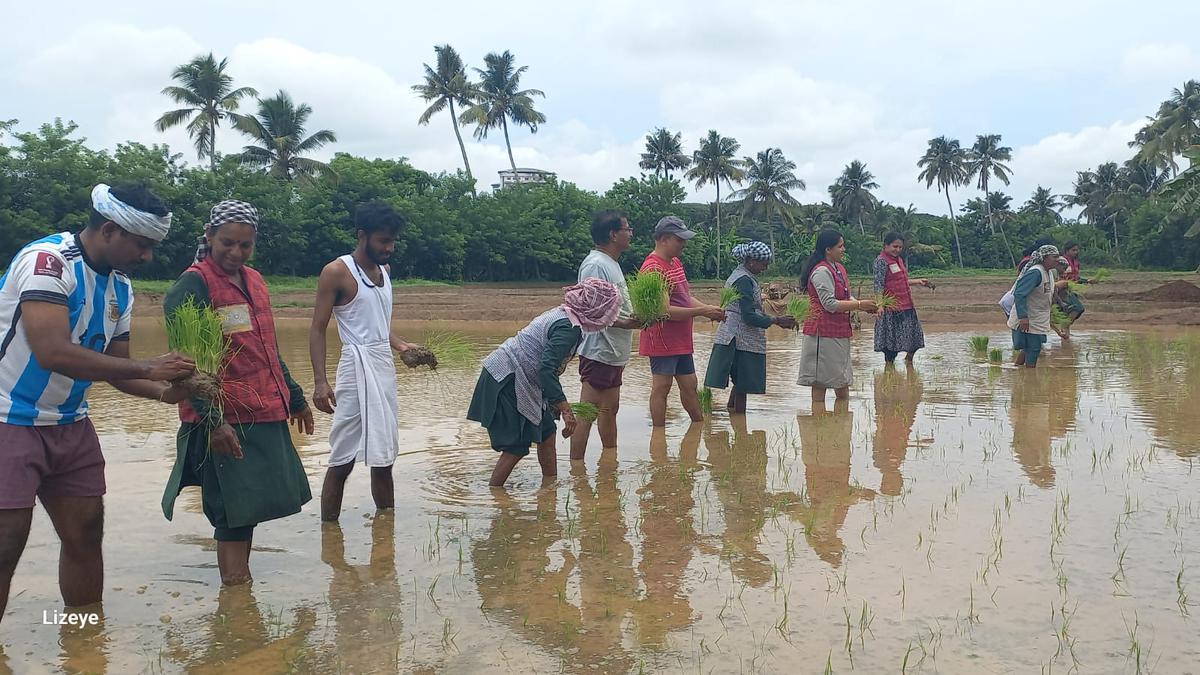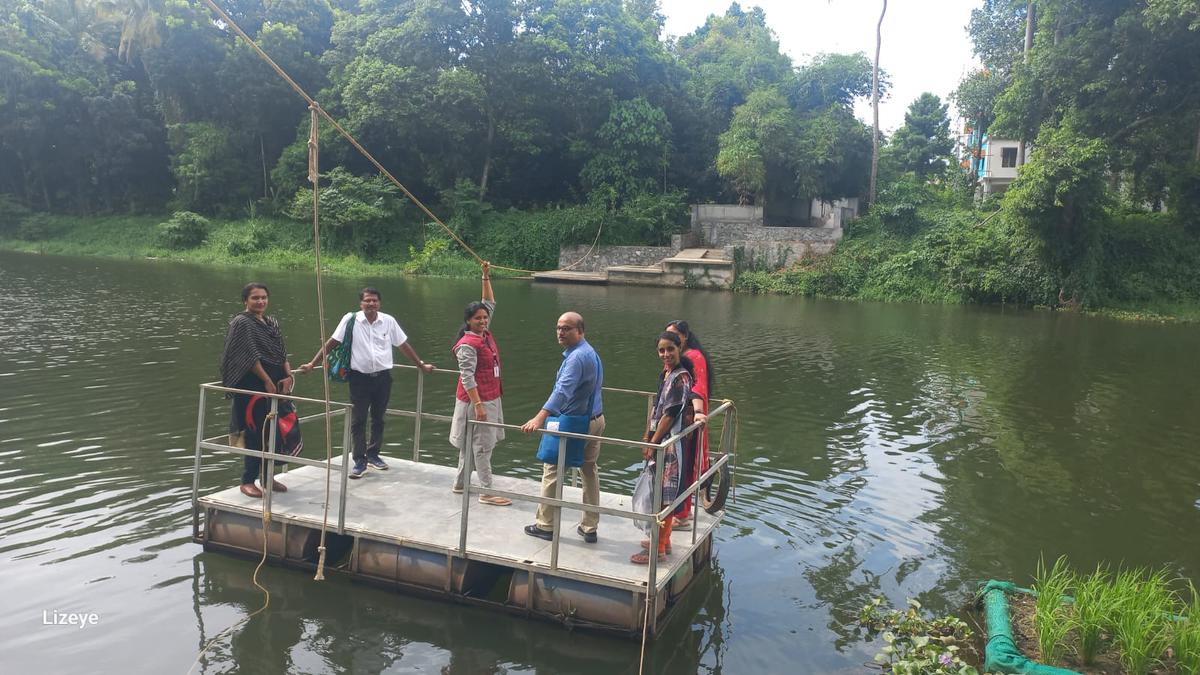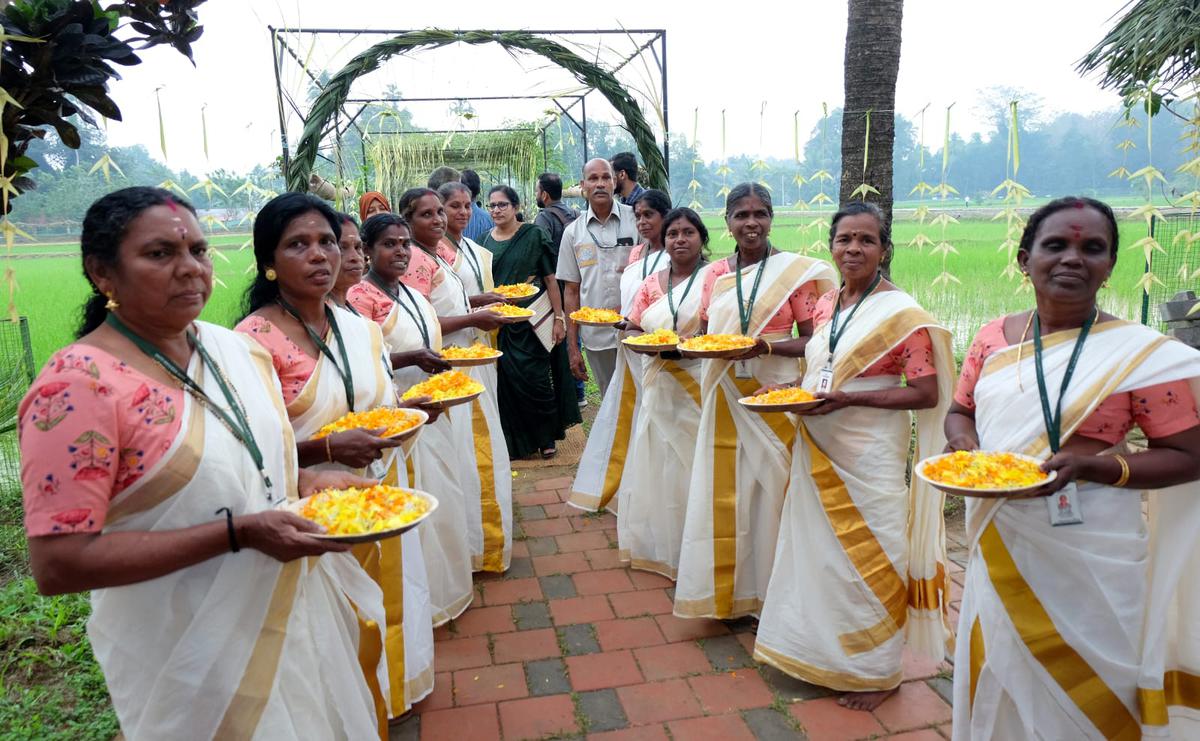“Onam is just 60 days away and people can start growing vegetables and flowers to be ready in time for the festival,” says Lisymol J. Vadukkoot, Assistant Director of Agriculture at the State Seed Farm (SSF) in Aluva.
The farm has launched a Thiruvonam assorted seedling tray (priced at ₹300), which has 98 cubicles containing the saplings of vegetables and fruits essential for the festival. On sale at the Eco Shop at the Metro Rail Station Aluva, it contains eight varieties of vegetables (brinjal, bitter gourd, tomatoes, pumpkin, chillies, and lady’s finger) and four to five varieties of flowers (marigold, chrysanthemum, and bachelor’s button). “It required planning to put it together,” says Lisy, adding that “it has received a thumping response.” She advises buyers to sow right away, as the thiruvathira njatuvella (the best time for planting), according to the Malayalam calendar, has just concluded (July 5).
I decide to visit the farm and meet Lisy at an interior road, a few kilometres from Desom Junction. Accessible only by boat, the farm is flanked by the Periyar and its rivulet, the Thoombathode. Spread over 13 acres, the land primarily produces seeds for paddy cultivation. It also houses a rice museum and plots for farm tourism.

The State Seed Farm, Aluva in Kochi
A slushy pathway leads to a stream with a raft hitched to a hook on the ground and an archaic ferry system. A rope stretched across the banks and pulled by passengers propels us across. “It is zero-energy travel,” says Lisy, as we disembark on the opposite side where a unique crop of floating paddy grows in bamboo frames on the water.
“Our speciality is that we produce rare and endangered varieties of traditional rice,” says Lisy. These include the rakthashali, rich in antioxidants and supposedly the diet of queens; the golden Njavara rice used mainly for “karkidaka kanji” or the fortified rice gruel popular during the monsoon season; the Jaiva rice that produces almost 800kg of rice from 20kg of seeds; the Japan Violet, a traditional variety from Kasargod, which has unique purple leaves; and others such as Vellathondi, Chettadi and improved Pokkali varieties. Another interesting kind is the Kumol Saul from Majuli island of Assam, “which is prepared by simple soaking in water.”
Kerala’s seed farms
There are 33 Kerala government seed farms in the State and two- Aluva and Okkal- in Ernakulam district. SSF was transferred under the Ernakulam District Panchayat in 1994. Though on a gradient higher than Aluva town the farm was affected in the 2018 Kerala Floods, with the water level marked on the office wall.
As the farm also makes value-added products like organic growth promoters, pest repellents, and flowering agents, buyers are encouraged to plant the saplings with a pinch of VAM (Vesicular Arbuscular Mycorrhiza), a biofertilizer used in sustainable agriculture. “We advise them to apply bio slurry once the plant is steady and then a weekly application of in-house made ‘kunjapala’ made with desi cow dung, bone meal, rice husk and coconut cake, and panchagavyam (a mix of desi cow dung, curd, jaggery, tender coconut water and banana), “once the plants flower. It is for high yields,” she explains.
In 2019, the farm had a kit comprising Njavara rice and herbs for the preparation of karikkadam kanji but, due to the failure of the crop due to high winds in the last two seasons, they could not do it this year.

A group from Cochin Shipyard planting paddy at the State Seed Farm in Aluva, Kochi
| Photo Credit:
Special arrangement
Farm tourism
With its natural scenic beauty, the farm has become a hot spot of farm tourism. An expanse of green meets the eye when you step out into the open. The land is divided into blocks, each with paddy in different stages of growth. A flock of duck peck through the watery slush where the paddy grows and indigenous breed of cows graze quietly. Dragonflies, birds and butterflies hover over paddy sheaves. “The ducks are sent into the fields to turn the soil,” explains Lisy.
On the far end where the wide Periyar flows is the Centenary Gate inaugurated in 2019. A walk down to its banks is under an arcade covered with the vines of the air potato. Shiny red chillies and fat maroon okra hang from overgrown plants that line the walk “ready for de-seeding”. The Indigo plant is lush and its leaves are used to colour to hair oil made here.
Until last year, the drying of harvested paddy and extracted seeds was hampered by the rains. So the farm invested in a solar dyer and a polycarbonate hothouse, which they now also use to dry vegetables and powder them at allied mills.
In May, a group from Cochin Shipyard had a field day at the premises. “We told them about organic sustainable cultivation. They planted paddy in an entire block, and while sowing, everyone sang and danced. The farm lifts everyone’s spirits. It is a perfect getaway,” says Lisy, adding that they have had almost 30 groups for a farm visit since last year.

The only way to reach the State Seed Farm in Aluva is by boat
| Photo Credit:
Special arrangement
Dance for Onam

Dance for Onam
For the first time, the 12 women workers at the farm are practising a dance for Onam. “When I joined, six years ago they were unmotivated; there was a lot of misunderstandings. Today they are all friends and, for the first time, will present a dance as a troupe. We are all practising daily,” says Lisy.
Stay connected with us on social media platform for instant update click here to join our Twitter, & Facebook
We are now on Telegram. Click here to join our channel (@TechiUpdate) and stay updated with the latest Technology headlines.
For all the latest Food and Drinks News Click Here
